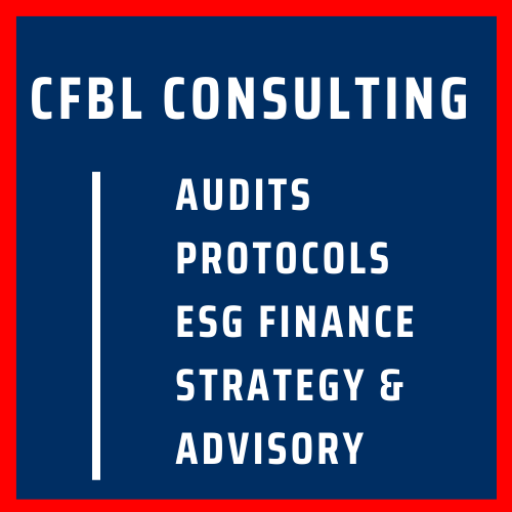What is Open book Accounting
Open book accounting (OBA) is a practice popular in supply chain management and in its simplest form, it is a safer business practice where a business shares key financial information with key stakeholders e.g. funders, clients, suppliers, investors, or contractors.
Open book accounting involves sharing cost information amongst parties in the supply chain, eliminating costs that are unrelated to a project or for non-value-adding activities. OBA provides increased value to customers and stakeholders.
What is open book accounting in construction
An agreement between an owner and contractor known as “open book contracting” lays out a work or service plan with total transparency on expenses, rates, budgets, and materials. Open book agreements transform contractors into allies who collaborate with the owner to accomplish shared objectives for the program, design, schedule, building performance, and—most crucially—the cost. This is a departure from the conventional hard bid contracting dynamics since it enables the owner, construction manager, and design partners to work as a team while maintaining the owner & complete control and final decision-making authority.
On infrastructure projects, this enables costs incurred during the project lifecycle to be reimbursed to the supplier based on transparency and the adequacy of transaction records, for costs, levies, and the correct composition of profit that the business owes to the supplier. If we look at the broader side of OBA, there is a high level of transparency required for OBA principles. All records are open to scrutiny and made available to important stakeholders. This plays a key role in building trust, providing a high level of assurance to clients and a greater sense of integrity.
Open Book Principles
Target Cost and Cost-Based Contracts
This is the actual cost of delivering a project along with the fee charged for the goods and services provided. It plays a vital role in OBA as cost savings on the target price feed into shared risks and rewards that are associated with the project. Factors like contingency and inflation are allowed for throughout the project lifecycle, but there are always unforeseen and unassigned risks for which there is no ownership.
Therefore, target costs can be of great benefit and advantage as they ensure that contractors and subcontractors work within the allocated budget, contract value and share in rewards where savings can be made on the project. The maturity of a contractor, subcontractor or alliance partner’s accounting systems, processes, and records for an open book approach will influence the realisation of these benefits.
Anyone who is involved in a closed book method, especially third parties, fears paying extra costs or hidden levies and charges that are not ordinarily visible to them. This, however, will be visible to an independent cost auditor. Such hidden extra costs can become a challenge that could jeopardise the credibility and relationships amongst the parties delivering the projects.

Related: Our Guide for Supply Chain Cost Assurance
Independent Cost Audits
The National Audit Offices‘ (2015) report by the Comptroller and Auditor General highlights how open-book accounting helps with supply-chain assurance on government contracts by providing information on how costs are built up and passed on to the client and taxpayers.
Open-book accounting requires suppliers to share information about costs and profits on a contract. Today, the need for public transparency and efficiency is fueling an increased use of cost-based contracts that apply OBA principles on major contracts.
The Ministry of Defence in the UK has used open book accounting on most contracts over the past 45 years. This is very beneficial where there is a single-source supplier. It provides a clear in-depth overview of money being spent, improved oversight and accountability, as well as securing better value for money over the annual £187bn spent and achieves this without creating any hurdles for SMEs (Accountancy Daily, 2014).
In recent years open-book accounting has helped government manage its contracts, gaining prominence with the over-billing on the Ministry of Justice’s electronic monitoring contracts. There is however a need for training and upskilling required for effective contract management across the public and private sectors.

Collaboration Trust and Revenue
Open-book accounting fosters trust and collaboration in funder, client, and supplier relationships. This often involves closely examining confidential data in line with General Data Protection Regulations (GDPR). For example staff remuneration, levies, profit of a contract or business and other commercially sensitive information, therefore it can require a complete change in mindset and processes.
Furthermore, the audit of such contracts is best conducted by an independent auditor who can apply professional judgement, care, and non-disclosure. While a reasonable level of profit is required for companies to continue to be a going concern, excessive profit is detrimental to taxpayers, and this means that there is less budget for other essential public services.
The need for accountability and cost efficiency is driving the increased use of cost-based contracts that require open-book accounting principles. Once these principles are understood and accepted by top management and across a business, these contracts can be hugely beneficial as they share risks and rewards. Furthermore, this fosters trust, collaboration, and long-term strategic alliances that can generate more revenue.
What is open book costing?
Open book costing is an analysis of all relevant contributing costs in respect of the contract. With open-book costing, contractors are paid based on clear records of the expenses they have incurred.
What are the characteristics of an open book account?
The characteristics of an open account are as follows: Commitment, Dedication, integrity,
coordination, good communication, involvement, and cooperative problem-solving.
What is an open book policy?
An open book policy is an agreement to view data and financial information about costs incurred in any one section of the supply chain. Collectively, the supplier and the client can ensure that costs are kept as low as feasible. The agreement must, of course, include a confidentiality clause, and the client is not permitted to share the information with the supplier rivals. The open book policy if implemented properly will make sure that the supplier is assisted in keeping the customer & business, which will keep the supplier stable and enable it to meet the customer’s needs.
Related: Open Book Accounting Pros and Cons
Open book account vs account stated
Account stated
An account stated is an agreement that the items of an account are factual and that the balance struck is due and owing based on earlier transactions between the parties.
- The components of the claim are prior business dealings between the parties establishing the debtor and creditor relationship.
- An express or implied agreement between the parties on the amount owed by the debtor to the creditor.
- An express or implied promise by the debtor to pay the amount due.
- An account statement is essentially a new contract that the parties to earlier transactions are bound by.
Essentially, an account stated is a new contract under which the parties to prior transactions
agree to a new balance due. As a result, a claim for an account stated is based on the new,
mutually agreed-upon contractual balance rather than the parties’ initial transactions.
Open book account
Open Book refers to an accounting method in which costs and returns (to the Contractor and the grantors), respectively are disclosed and transparent without divulging private financial information to competitors.
Benefits of Implementing Open-book Accounting (OBA)
- Promoting and delivering value for money on contracts
- Manages supplier risk as supplier’s fees are not fixed
- Dependent on actual /defined costs and shares risks and rewards
- The open book is vital for managing large long-term contracts
- Beneficial in the public, private sectors and on PFI contracts
- Useful where there is a high degree of risk and uncertainty
- Managing competition risks and maintaining control of costs
- Informing commercial decision-making and negotiations
- Supporting change, any extension of time and compensation events
- Avoiding fixed-price contracts becoming cost-plus due to variations
- Exposing unsustainable low contract prices and wrong practices
- Revealing attempts to recover costs elsewhere from clients/funders
- Minimising surprises, safeguarding revenue, and profit risks
- Increases assurance that cost data and records are accurate
- Minimising waste for the attainment of joint benefits realisation
- Reducing the risk of additional cost on large long-term projects
- Incentivising sharing of risks and rewards such as savings or profit
- Highlighting poor performance, risks and a need for early mitigation
Limitations of Open-book Accounting
- Open book requires a cultural change in the organisation
- Requires skills unavailable in-house e.g., independent auditors
- Can be time, information and resource-intensive
- Open book being extended to other contracts excessively
- Being used for the wrong reasons e.g., to transfer risks
- Requires adapting and experience for each type of contract
- Excuse to not proactively manage significant project risks
- Requires target cost experience and commercial capabilities
- Requires openness, and a culture of trust and transparency
- Access to sensitive information could be met with resistance
- Safeguarding sensitive data from competitors and clients
- Exposes inappropriate aggressive price competitive practices
- Risks of disallowed costs, loss of fees and revenue
- Increased data and commercial risks if not robustly mitigated
Implementing OBA Best Practice Protocols
- Communicating clearly pre-tender that all records are open to scrutiny
- Developing a clear cost assurance strategy early pre-tender
- Specifying in scope the format, level of detail and information required
- Pre-planning the level of resources required by all parties
- Embedding commercial protocols as part of a business-as-usual practice
- Supply-chain assurance training for commercial upskilling
- Establishing a common approach for applying open-book principles
- Consistency with the allocation and presentation of cost data
- Developing standard reports for the presenting cost information
- Guidance for interpreting suppliers’ costs, profits, versus the contract
- Capturing meaningful benchmarking data for future cost decisions
- Sustainability reports on environmental, social and governance records
- Reinforcing audit rights and scrutiny that will be actively managed
- Defining upfront, project costs that will be reimbursed or disallowed
- Aligning cost systems and substantiation to contract requirements
- Joint contractual reviews and contract understanding pre-mobilisation
How CFBL can help you?
Cecelia Fadipe has held past senior positions at Network Rail, Deloitte Consulting, Westminster Council, Ealing Council, and Mott MacDonald. and led or worked on projects of up to £1.6bn undertaken on behalf of or by Crossrail, HS2, Costain, Balfour Beatty, Vinci, Bechtel, Siemens, HSBC, Dept for Works & Pensions, Lloyds Banking Group & Willis and had successfully helped in delivering up to £15m of cost efficiencies and minimised risks within these organisations and on these projects. CFBL offers robust cost assurance protocols and contract review services to facilitate alignment on contract costs by all parties and to mitigate costs risk over the project lifecycle. We identify contract requirements, risks, opportunities, provide recommendations, an implementation roadmap, cost advisory and much more!
References
1. https://www.nao.org.uk/wp-content/uploads/2015/07/Open-book-accounting-summary.pdf
2. https://www.accountancydaily.co/government-plans-open-book-accounting-public-contracts
3. http://www.cimaglobal.com/Documents/ImportedDocuments/cid_mag_supply_chain
4. https://www.cipfa.org/training/short-courses/an-overview-of-open-book-accounting
5.https://www.neccontract.com/getmedia/af8a7cf4-4103-441b-9555-493c118fd252/Q-and-A-Cost-Effective-Assurance-webinar.pdf.aspx
What does CFBL Consulting do?
CFBL consulting offers cost-assurance audits and sustainable strategy consulting services. This includes an initial ESG assessment, an X-ray view of actual costs to prevent or evidence greenwashing, impact reporting, a payroll audit to safeguard equal pay, and practical training on how to embed ESG KPIs into finance, commercial, and project investment decisions. We identify, resolve, and follow through. By establishing ourselves as strategic partners, we govern and help implement sustainable strategies. Our roadmaps ensure that project plans are successful, as a result, we measure our success by yours.
Who We Work With and What We Do
- Infrastructure project: cost assurance audits, systems payroll HR audits & protocols
- SME Business Strategy: 5-Yr strategic business plans and financial statements
- Fintech/Transformation advisory: minimising risk and optimising business case ROI
- Sustainability & ESG: pay-gap carbon cost audits reporting ESG finance training
- Training: delivering case-based training for buy-in to technology & staff upskilling
- Fintech & Digital: strategy cost optimisation & digital transformation advisory
- Steering Group (CSR): cost assurance and audits on infrastructure projects/contracts
Sustainability & ESG Strategy Tips – How can CFBL Consulting help
- Developing and implementing a sustainable business strategy for growth/scaling
- Sustainability/ESG strategy: implementing, carbon measurement and benchmarking
- HR/Payroll audit: Independent HR, payroll cost, pay-gap gender balance auditing
- Sustainability & ESG: strategy implementation, carbon cost auditing/impact reporting
- ESG Finance training: upskilling staff/supply chain on ESG KPIs in decision making
- ESG protocols: training & designing controls, tools, and templates for ESG reporting
Infrastructure Projects – Tips & How can CFBL Consulting help
- Cost assurance: implementing capex people, process, systems & controls
- Protocols: training & designing project/contracts process, tools, templates
- Independent cost audits: verifying actual/ defined cost on cost/open book contracts
- Systems auditor: examining financial records, controls, and cost systems for integrity
- Pre-audit diagnostic: identifying risks on cost-based/open book alliance contracts
- Independent contract auditor role: Undertaking internal project/contract auditor role
- Legal records: facilitating records for legal compliance on cost/open book contracts
- Payroll audit: Independent HR, payroll, carbon cost, gender pay-gap/balance audit
- Business case: Implementing Capex strategy/developing investment business cases
- ESG Finance training: upskilling staff/supply chain on ESG KPIs in decision making
- ESG protocols: training & designing controls, tools, and templates for ESG reporting
SME Business Strategy -Tips & How Can CFBL Consulting Help
- Scale-up investor funding pitch diagnostic assessment and recommendations
- Developing a sustainable business plan for scaling up, funding, and advisory
- Developing/implementing strategy: sustainable business strategy for growth/scaling
- 5-Yr Strategic business planning: financial statements, analysis for funding & grants
- People training & upskilling: business and supply chain engagement and training
- Independent Fintech/Transformation Advisory: minimising risk and optimising ROI
- Capex Investments: optimising grants, funding R&D tax credits & capital allowances
- Financial management: tax, planning & implementing financial controls for resilience
- Finance business partnering providing strategic advice in financial decision making
Fintech & Digital Transformation Advisory – How can CFBL Consulting help
- Commercial systems: advisory on commercial, contract, cost, audits & projects
- Financial systems: advisory on financial, HR, management, and reporting systems
- ESG KPI reporting: Insight and benchmarking for reporting and competitive edge
- Independent advisory on payroll, project, contract, cost, audit and reporting software
- Independent advisory on technology that best aligns with strategic objectives
- Training: delivering case-based training, for buy-in to technology & staff upskilling
Steering Group (CSR) Outputs: Tips – How our Steering Group Experts help
- Key Output 11- Risk and Market Forces
- Key Output 10 – The Future of Construction
- Key Output 9 – The Future of Assurance
- Key Output 8 – Technology
- Key Output 7 – Cost Assurance & Audit in Practice
- Key Output 6 – Cost Reporting
- Key Output 5 – The People Perspective
- Key Output 4 – The Legal Perspective
- Key Output 3 – Contracts & Key Terms
- Key Output 2 – Standards & Frameworks
- Key Output 1 – Cost Assurance Key Issues




